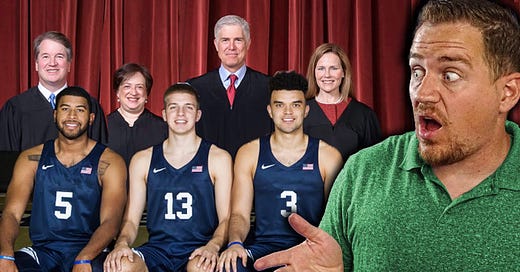Have you tried joining an online community but stopped participating after your first week?
Here’s my experience trying to jump on Discord communities. There are the hyperactive channels, where users who have no life are able to constantly flood the server, and if you’re not constantly on them you have no idea what’s happening. Then there are the inactive channels, where no one ever posts anything. Somewhere in the middle are the channels where people post, but it’s never meaningful.
None of these are attractive to me.
I think that economics can fix that, which is why I’m launching the Market Power Community.
For a while now, I have wanted to launch a membership community. The main thing that has stopped me is fear. I was scared that I could not create a community that would produce the greatest value.
Even though I’m still scared, I’m trying the community anyway.
Starting now, you can register to join the Market Power Community. Here are the main details you need to know:
It is a paid membership community. I’m putting that first so you’re not surprised!
It will last 6 months.
There’s a book club!!
Registration will end July 7.
I explain more at the landing page, but the gist is that a defined period will help us evaluate whether we are reaching out goal to create a viable online community. I’m pretty optimistic!
The theme of the book club is Property and Poverty. We have five books that will look at issues of property rights and how they connect to economic development. Don’t worry, even if you don’t join the community, I’ll be sharing the books with readers and viewers. The benefit of joining the community are (1) discussing the books with other people and (2) joining me on live interviews with the authors (hopefully! that’s my big goal).
If you’re interested in learning more, check out my landing page. If you’re already convinced, go to the registration page!
I’ll be posting a video about the community later in the week. I’ll send out an email then. Remember, registration ends on July 7!
Supreme Court and NCAA
In exciting economics news, last week the Supreme Court ruled that the NCAA was breaking U.S. antitrust law by restricting competition for student athletes. Since antitrust is such an interesting issue, I dove into the research on who benefits from the NCAA’s anticompetitive behavior. I made a short (4 min) video on my predictions about the future of college sports. Head over to the channel if you’re interested in rent sharing!
Elon Musk’s house
Elon Musk is one of the top five richest people in the world, and depending on the stock market he is sometimes the richest. (Of course, if his dogecoin holdings are large enough, he could secretly be much richer than we know.)
What do you do with that wealth? Jeff Bezos has used his to build a $175,000,000 mansion. Poor Bill Gates only has a $130,000,000 house.
This week we discovered that Elon Musk has also gone for a new home. But it’s only $50,000. The home is 400 square feet, probably the size of Bezos’ guest bathroom. And the coolest part of all is that it was built in a factory and towed to the property. The article has videos of how the house was created, but here’s the main takeaway: if this go more popular, it has huge implications for creating more affordable housing.
Crime
A few weeks ago I posted my review of Freakonomics, and one of the most controversial topics was the causes of crime. While the abortion hypothesis has fallen out of favor, a growing hypothesis is the connection between lead and crime. If you’re interested in learning more, you should read this accessible summary by Jennifer Doleac, the leading expert on the economics of crime.
Markets in Everything
A chicken nugget in the shape of an Among Us character sold for $100,000. Supply and demand, amiright?




